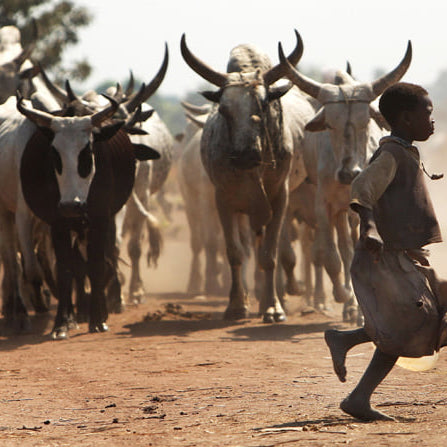Women and Cattle “Becoming-With” in Botswana
DOI:
https://doi.org/10.52537/humanimalia.9433Abstract
Cattle are paramount to lives, livelihoods and landscapes in Botswana. Human-cattle relations emerge and evolve through historically-situated social relations of power based on gender, ethnicity, and class. Our paper explores intersectional human-cattle relations in Botswana within the contemporary period of enhanced commercialization. Specifically, with data from participant observation and semi-structured interviews with women cattle owners in Ghanzi District, Botswana, we investigate how women across a range of ethnicities become-with cattle and how cattle are becoming-with women cattle owners, directly or mediated through hired labour and/or technology. By operationalizing Haraway’s multispecies ‘becoming-with’ through intersectionality theory we articulate the nuanced ways in which individuals or social groups of two distinct species (here humans and cattle) become who they are. We show that whereas gender and ethnicity dynamics place women as engaging directly with cattle, engaging indirectly with cattle or becoming-without cattle, class most visibly shape the way that cattle become-with women cattle owners and other humans. We offer a novel illustration of an intersectional becoming-with, highlighting human-animal relations in the context of agriculture and socio-economic change in the Global South.
Downloads

Published
Issue
Section
License
Copyright (c) 2020 Andrea Petitt, Alice J. Hovorka

This work is licensed under a Creative Commons Attribution-NonCommercial 4.0 International License.









